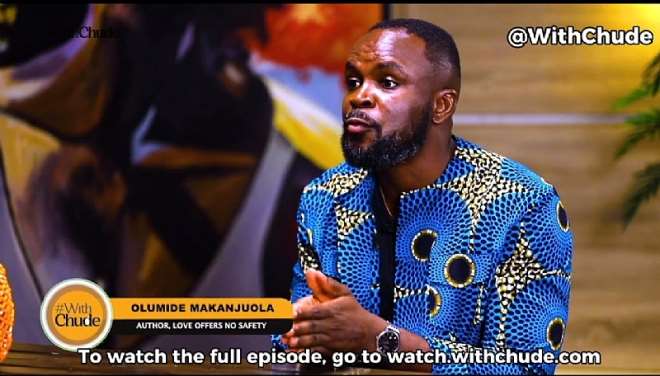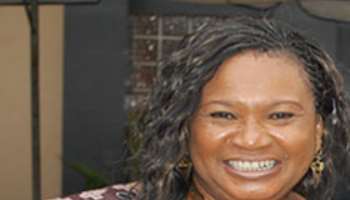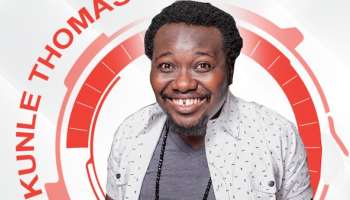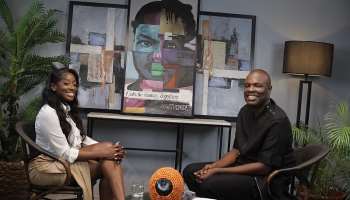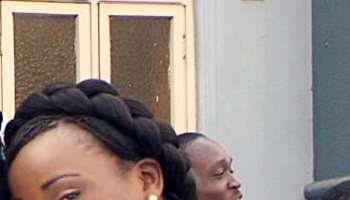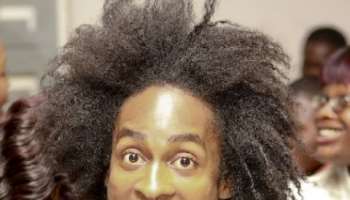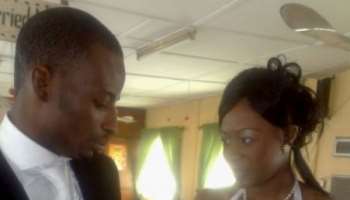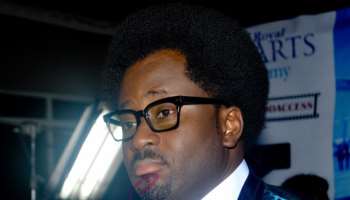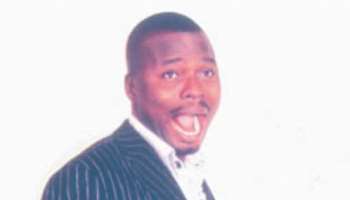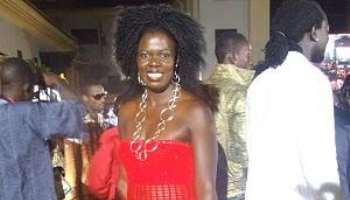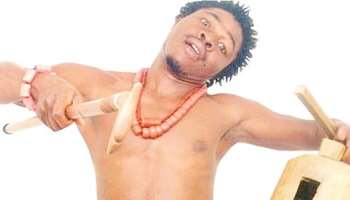“We are dealing with the issues of freedom of association and freedom of assembly, not just LGBTQI” Olumide Makanjuola on #WithChude.
Nigerian Human Rights Activist, Olumide Makanjuola sits with Chude Jideonwo to discuss his recently launched book, ‘Love Offers No Safety: Nigeria’s Queer Men Speak’, a bold, blinding book about LGBTQ men of all ages. On the show, he spoke about the last two decades of fearlessly advocating and fighting for intersectional human rights and becoming a father.
Olumide shared his experience about advocating for different changes in laws as an activist and how he believes that attitudes need to change for a better society. He also spoke about his work as the executive director of The Initiative for Equal Rights (TIERS) and happening on storytelling as a tool for change in attitude in Nigeria. This was evident through different works of his like, Veil of Silence, We do not live here anymore, Everything In between, Hell or High Water, and Walking with Shadows. “Before I became the executive director of TIERS, I used to interface with the community a lot. One of the things that always shaped how I engaged with people, or design program, was the conversation I had with people. People share how their parents threw them out because they were queer, gay or lesbian. People tell you the difficulty of having to show up every day of their lives, and having to pretend to be who they are not. A lot of this shaped how I journeyed into storytelling.”
Speaking on TIERS decision to stay with the James Brown case before it became a cultural phenomenon and every other case they have taken on, he said, “There was no base for the conversation saying that they were having gay party. Does it mean same sex people cannot have a party? It was a party, there was no evidence showing that they were gay, they weren’t caught having sex. What Nigerians need to understand is that the issue we are trying to address, is not because of people who are gay, lesbian or trans. We are dealing with the issues of freedom of association and freedom of assembly. You are in an environment that dictates how we relate and associate”. He also shared on the issues surrounding the society outlook to queer issues, other stance the government has taken over the years, and how it affects the everyday people who are at the centre of this issue. “Well, it is really quite disturbing. But I also think that you also need to look at it not from the ‘queer issue’ but generally as our society would look at issues. I remember there was a time they were talking about passing a law at the National House of Assembly about indecent dressing. I was just taken aback. What is indecent dressing? How do you define it? Whose point of view are you using to define indecent? So, I think we have to look at it the way we do with issues generally in society. One of the things we do is we police ourselves a lot. I always go back to women’s right issues because we have to look at how we’ve dealt with women’s issue in Nigeria”
On his personal journey to becoming a father, he shared, “When I had a child, people thought I was married, like I had a wife somewhere. I think that society make queer people explain themselves a lot. You will spend the rest of your life explaining yourself. That’s not how I want to live and that is not how I am going to live. You are going to see how I live, and you are going to experience how I live. On why he chose to write the book, he said, “One of the interesting things about the book is that it is about people’s lives. People share their story in fullness, who they are, how they navigate society, what their relationship was with their parents. One of the things that came out a lot was people’s relationship with religion. It is a really wide spectrum of 25 incredible stories.”
Watch the excerpt here:
https://www.instagram.com/p/Cz6tJLXLptq/
Latest News
-
 "If You're For Me, I Am For You" - Cubana Chief P
"If You're For Me, I Am For You" - Cubana Chief P -
 "3 Days To Go" - Femi Adebayo Urges Fans To Get S
"3 Days To Go" - Femi Adebayo Urges Fans To Get S -
 "Stop Asking Me Questions About Speed Darlington"
"Stop Asking Me Questions About Speed Darlington" -
 "Benue Is The Most Underdeveloped State I've Ever
"Benue Is The Most Underdeveloped State I've Ever -
 Stan Alieke Urges Young Professionals To Take Lin
Stan Alieke Urges Young Professionals To Take Lin -
 Chizzy Alichi Teases Fans With Baby Reveal, Promot
Chizzy Alichi Teases Fans With Baby Reveal, Promot -
 "I'm Not Wearing Makeup From July 4th Till Decemb
"I'm Not Wearing Makeup From July 4th Till Decemb -
 "Stop The Challenge Of Mocking Kids With Down Syn
"Stop The Challenge Of Mocking Kids With Down Syn -
 Regina Daniels Celebrates Sons As They Mark Birthd
Regina Daniels Celebrates Sons As They Mark Birthd -
 Speed Darlington Threatens To Sue NAPTIP For Defam
Speed Darlington Threatens To Sue NAPTIP For Defam


